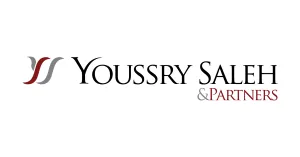The Golden License framework in Egypt has been introduced by virtue of Article No. (20) Of the Investment Law No. 72 of 2017 and Articles (42 and 43) of its Executive Regulations in order to support strategic projects aimed at securing supply of essential goods, reducing imports, and promoting domestic labor-intensive initiatives. The framework offers streamlined licensing and incentives for projects that contribute to sectors such as electricity and renewable energy, agriculture, environment, and petroleum and mineral resources.
Whereas, the golden license can be defined as a single approval to establish, operate and manage the project, including building permits and allocating the necessary real estate for it. It may be granted to companies by a decision of the Council of Ministers. This approval may include the application of one or more of the incentives stipulated in this law to the project. This approval shall be effective on its own without the need to take any other action.
According to the text of Article (20) of the above-mentioned law, the golden license (one-time approval) may include application of one or more of the incentives stipulated in this law to the project, and this includes the incentives stipulated in the second chapter of the Investment Law, which are: general incentives, special incentives and additional incentives.
The golden license (single approval) may be granted to companies incorporated to establish strategic or national projects that contribute to achieving sustainable development in accordance with the state's economic development plan. And companies that establish partnership projects between the private sector and the state, the public sector, or the public business sector in activities (public facilities and infrastructure – new and renewable energy – roads and transportation – ports – communications and information technology).
Accordingly, under the Golden License framework, projects related to electricity and renewable energy are encouraged. This includes the development of green hydrogen projects, electricity transmission for national agricultural projects, and establishment of green corridors to maximize renewable energy in the electricity mix. Additionally, projects focusing on electricity interconnectors with neighboring countries and electricity storage solutions are also supported.
Environmental projects play a crucial role in the Golden License framework. The framework encourages the manufacturing of eco-friendly alternatives to single-use plastic products and emphasizes integrated waste management activities to mitigate environmental impact.
For projects related to petroleum and mineral resources, the Golden License framework offers support for the projects that focus on reducing carbon emissions, expanding the use of natural gas as an alternative to diesel and gasoline, and enhancing crude oil and gas production through atmospheric distillation and refinery development.
To qualify for the Golden License, Article (20) of the aforementioned Investment Law project companies must adhere to specific requirements. These include incorporation as a joint stock company or Limited Liability Company incorporated under either the Investment Law No. 72 of 2017 or the Companies Law No. 159 of 1981, providing evidence of financial solvency. The company must be established at a later date than the date on which the aforementioned investment law comes into force, submitting a feasibility study prepared by a reputable consultancy firm, presenting a detailed project implementation schedule, submitting an acknowledgment of the commitment to provide all private infrastructure facilities (roads, water, sewage, electricity, communications, waste treatment) and submitting an acknowledgment of compliance with all relevant laws and regulations is also necessary.
The Golden License aims to simplify the licensing process by providing a comprehensive single license that covers various aspects for each project, including construction permits and real estate allocation. Furthermore, it may offer additional incentives, such as cost-sharing for infrastructure utilities, technical training support, or land allocation benefits.
While the Golden License streamlines the licensing process, it's important to note that certain specialized authorities may still require specific licenses or permits. For instance, electricity projects may necessitate additional approvals from the Egyptian Electric Utility and Consumer Protection Regulatory Agency (Egypt CPA), while water and agriculture projects may require authorization from the Ministry of Water Resources and Irrigation.
The content of this article is intended to provide a general guide to the subject matter. Specialist advice should be sought about your specific circumstances.


